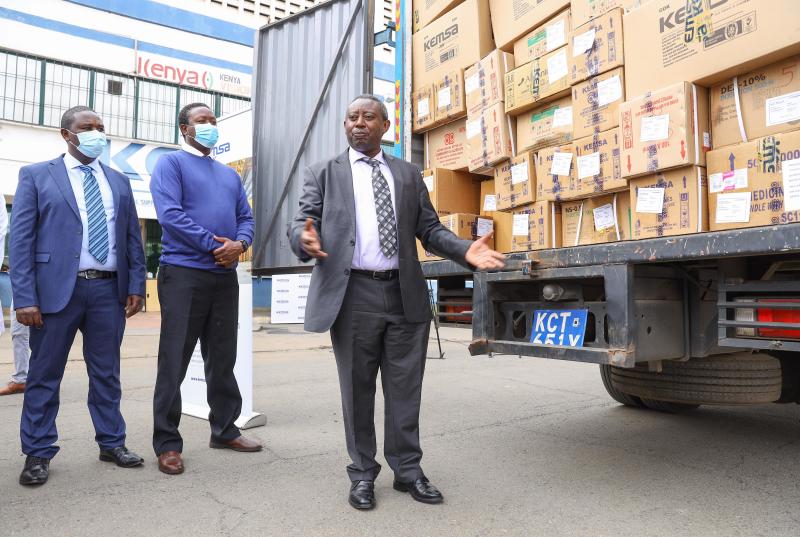×
The Standard e-Paper
Home To Bold Columnists

Kemsa Acting Director John Kabuchi (right) with two officials display a consignment of medical supplies being dispatched to the counties at the authority’s National Supply Chain Centre in Embakasi, Nairobi. [File, Standard]
Nineteen months since the suspension of top officials at the trouble-ridden Kenya Medical Supplies Authority (Kemsa), no one has been prosecuted over the myriad scandals.